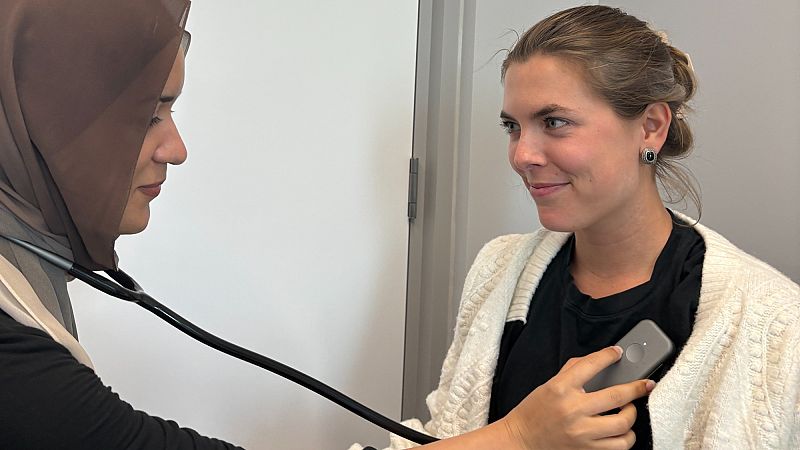AI stethoscope can detect heart conditions in just 15 seconds, UK doctors find

UK researchers say a stethoscope powered by artificial intelligence (AI) can detect three heart conditions in just 15 seconds.
The AI stethoscope analyses small changes to the heartbeat and blood flow that would otherwise be undetectable to the human ear. That ensures doctors can identify potential heart problems quickly enough for patients to seek potentially lifesaving medical care.
The latest findings are “an elegant example of how the humble stethoscope, invented more than 200 years ago, can be upgraded for the 21st century,” said Dr Sonya Babu-Narayan, a cardiologist and clinical director at the British Heart Foundation, which funded the study.
As part of the real-world trial, doctors tested the AI stethoscope against standard care in more than 200 general practitioner (GP) offices. The study included more than 1.5 million patients who had heart failure symptoms such as fatigue or shortness of breath.
Patients examined with the AI stethoscope were more than twice as likely to be diagnosed with heart failure, about 3.5 times as likely to be diagnosed with atrial fibrillation – an abnormal heart rhythm that can raise the risk of stroke – and nearly twice as likely to be diagnosed with heart valve disease, which is when at least one heart valve does not function properly.
“Our study shows that three heart conditions can now be identified in one sitting,” Dr Nicholas Peters, a cardiologist and the trial’s senior investigator from Imperial College London, said in a statement.
Notably, though, about two-thirds of patients who were flagged by the AI stethoscope as potentially having heart failure did not actually have the condition, the doctors found after ordering blood tests or heart scans.
Unnecessary anxiety?
The researchers acknowledged that the stethoscope’s apparent oversensitivity could lead to unnecessary anxiety and tests for some patients, but noted that the tool also detects genuine heart problems that might otherwise have been overlooked.
They suggested that the AI stethoscope only be used for patients with suspected heart problems, not for routine health checks.
However, it’s unclear whether doctors find the tool useful. A year after being given the AI stethoscopes, 70 per cent of GP offices stopped using them regularly, the trial found.
The AI stethoscope was developed by Eko Health, a California-based health technology company.
The researchers from Imperial College London and Imperial College Healthcare NHS Trust presented their findings at the European Society of Cardiology’s annual meeting in Madrid.
Despite the limitations, Babu-Narayan said new tools to speed the detection of heart failure are critical because many people are only diagnosed once they arrive at the hospital in a medical emergency.
More than one million people in the United Kingdom and 60 million worldwide are estimated to be affected by heart failure.
“Given an earlier diagnosis, people can access the treatment they need to help them live well for longer,” Babu-Narayan said.
Today

